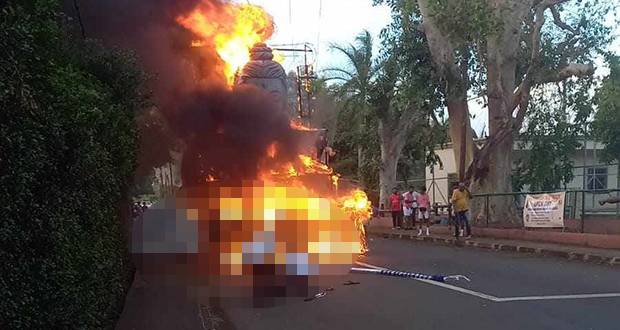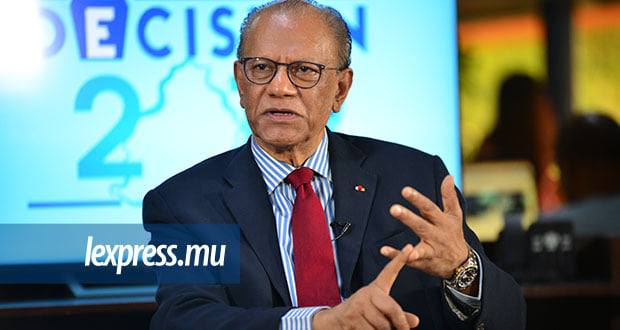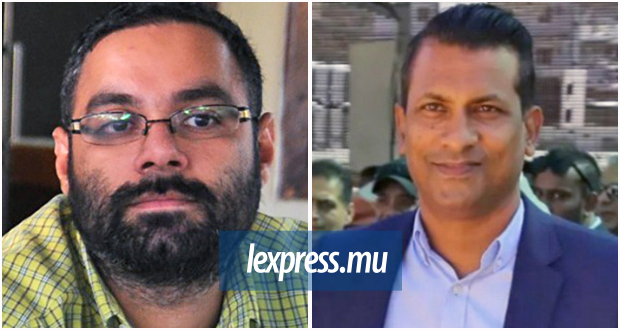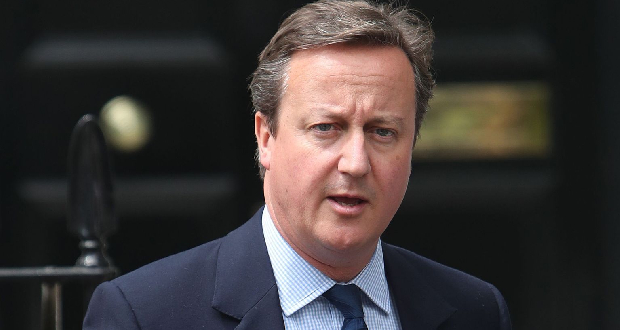Publicité
Apropos of the interview with the Selvons
Par
Partager cet article
Apropos of the interview with the Selvons
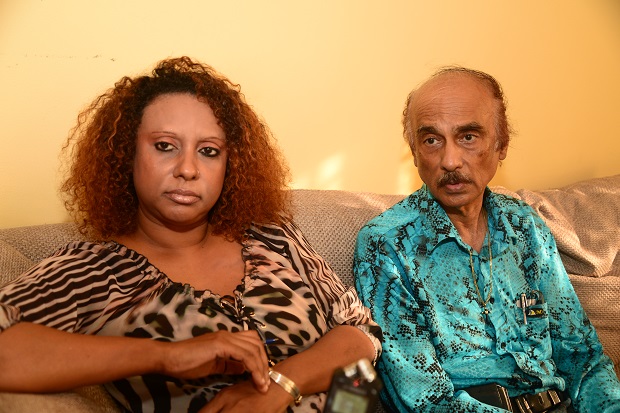

The journalist’s role is to ask hard-hitting questions and obtain answers for the public interest. It is not Weekly’s premise to influence interviewees’ answers. Still less to influence readers who comment on articles published in Weekly.
Two weeks ago, Weekly interviewed Danielle and Sydney Selvon about the former’s resignation from government in protest at the good governance and integrity reporting bill. We also questioned her subsequent decision to support the bill as an independent MP. Mr. Selvon is entitled to his own opinion in a free society. Here are extracts of the interview for readers to make up their own minds.
For ethical reasons, we have chosen to omit – for now – some very surprising comments about the government’s motivations behind destroying the BAI that were made after the interview.
Extracts from Danielle and Sydney Selvon’s interview
When you resigned from your position as a government backbencher, you gave at least two reasons for your refusal to sign the controversial good governance and integrity reporting bill. First, you insisted that the Asset Recovery Unit stayed in the office of the director of public prosecutions (DPP) instead of being moved to a ministry and you disagreed with the appointment of the chairman and members of the agency and board by ministers. You said such matters should be dealt with in court not by a judge in chambers, do you maintain that?
Danielle Selvon: Either the DPP or there should be consultation with the leader of the opposition, the prime minister and the president.
Weekly: Your first contention was that the Asset Recovery Unit should stay at the DPP’s office and that the nominations should not be done by ministers.
DS: I said we should not give the minister the power to do the nomination of the director: either keep it with the DPP as he is independent or we put a director after consultation with the leader of the opposition. But I would have preferred that it stays with the DPP because he is an independent man. But if not so, it should be…
W: But when you stand for a principle and resign for a principle, how can you make such concessions?
DS:As long as the seizure of property goes through the judiciary…
W: There was never any question of seizure by the agency but just an inscription.
DS: Yes, but you had only 21 days to produce the receipts!
W: So what you are saying now is “just give people time and carry on with what you had initially planned”, is it?
DS: Even the inscription is not good. Even the inscription has to go through court.
W: But the elements you so strongly objected to are the same. So what has motivated your decision to now sign the bill? The agency can still inscribe the property. The only difference is the time given for the people targeted to explain their wealth and wealth below Rs10m will not be investigated…
DS: Yes, that’s important too.
W: How is it important to make a difference between small crooks and big crooks?
DS: Yes, it’s like that.
I had started losing her. So I pressed for an explanation.
W: What do you mean?
DS: It could have changed, you know, but at least some people are protected. Not all of them, but at least some are.
W: Are we talking about pandering to constituents or about fairness to every citizen in this country?
DS: Of course it’s not fair, but at least some people in this country will be protected.
…
We seemed to be going nowhere. And I was no nearer to what has made the bills so attractive now with the few minor changes which were not mentioned when Selvon resigned.
Sydney Selvon steps in at this point.
SS: No, no, no. What she was objecting to is the basic separation of powers. The thing is that the law as it originally stood was that the judiciary was not going to be involved and that judicial powers were given to the minister. That is against the law because people have to fight for years to have the inscription removed.
W: That lack of separation of powers has not changed, has it?
DS: It has because now it is the prime minister who appoints the director of the agency…
W: So it is still the Executive – not the Judicial and Legal Services Commission, isn’t it?
SS: The amendments have not been circulated yet but the minister said that the judiciary will be consulted.
W: But the inscription is still in the hands of the agency whose director will still be appointed by the prime minister who is a member of the Executive. So taking the powers of the judiciary and arrogating them to the Executive, which you took a strong exception to, has not been tackled.
SS: I think the idea is to reassure many people who are behind her (Danielle Selvon). Even if she is voting, there are some problems with this law that will have to be resolved at some point. But, the principle is that she wanted a judge to be involved, and she got a judge involved.
W: No, there was always going to be a judge involved. There was always going to be a retired judge appointed.
SS: The decision for inscription will be in the hands of a judge, retired or not.
I did not want to persist. I knew the three amendments were about the nomination of the agency and board chairmen, the extended time given to prove one’s innocence and the Rs10m ceiling. But what the heck!
…
We also talked about her travels.
How many times did you travel since the beginning of your term?
DS: It’s totally voluntary for the African Union. It’s not as if we get paid or anything.
W: How many times did you travel since the beginning?
DS: I travelled just for the Pan African Parliament.
W: How many times?
DS: Maybe three times.
W: (To Sydney Selvon.) Were you with her in South Africa?
SS:I went to meet her in South Africa. I said I want to travel with you. I paid for my ticket. I didn’t ask for anything.
DS: He came because it was my birthday.
SS: 27 October is her birthday. I took a present for her. I stayed at the hotel while she was going across the country. She was called ‘The Iron Lady’ by the people who attended the meeting. She is very competent in this kind of thing. Three thousand people died in the last election. So there was a lot of fear that there would be violence again. She risked her life. It wasn’t a pleasant trip at all.
…
W: Some of your ex-party members also said that the reason you left is because you had the post of president or vice-president in mind, which you did not get. Did you ever ask for that?
She was prepared to answer this question and she did so without hesitating.
DS: I didn’t. I was elected so how can I be president? I can’t, you know, resign from number 1 and go through an election again. It’s so far-fetched. And anyway, Jhugroo is almost saying that I am from the minority so I can’t become a vice-president or a private parliamentary secretary! Which means that if someone is from the minority, they can’t tomorrow get a job in government! Now you can see the way people think.
For more views and in-depth analysis of current issues, subscribe to Weekly for as little as Rs110 a month. Free delivery to your door. Contact us: touria.prayag@lexpress.mu
Publicité
Les plus récents
